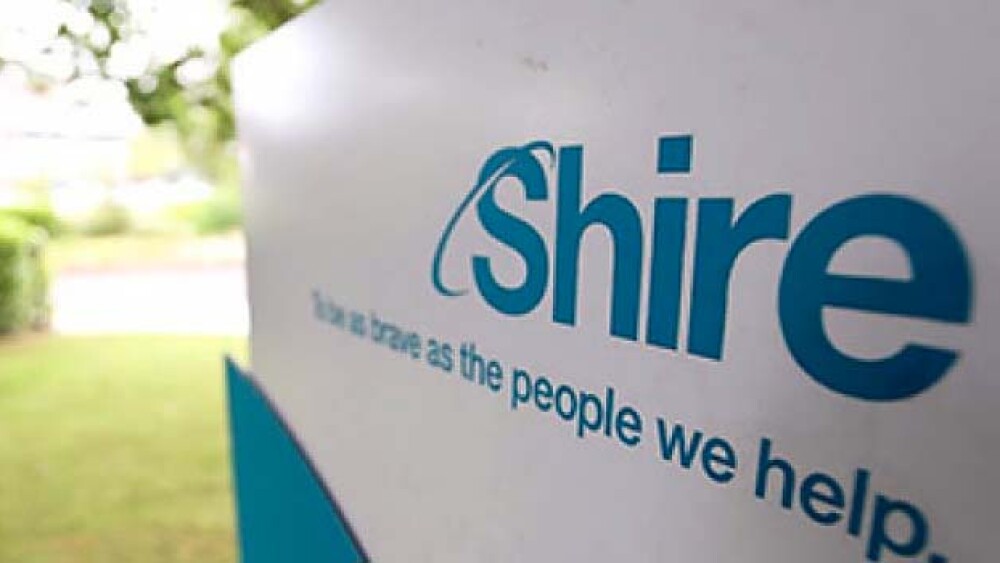Shire is promoting its third annual #FlyforMPS campaign as part of MPS Awareness Day 2018.
Shire Pharmaceuticals is promoting its third annual #FlyforMPS campaign as part of MPS Awareness Day 2018.
MPS stands for mucopolysaccharide diseases, which are rare, genetic, metabolic disorders that affect about one in 25,000 births. They are also known as lysosomal storage diseases (LSDs). People with these diseases don’t have enough, or any, of an enzyme that breaks down sugar, called mucopolysaccharide or glycosaminoglycan (GAG) in the body. When GAGs build up in the body, they can cause damage to the heart, bones, joints, respiratory system and central nervous system, often leading to an early death.
There are seven types of MPS disease. Each disease is caused by a different missing enzyme or enzyme that doesn’t function properly. Each MPS disorder gets worse with time. They also affect different people uniquely.
The seven types include: MPS I (Hurler, Hurler-Scheie, or Sheie syndrome); MPS II (Hunter syndrome); MPS III A-D (Sanfilippo syndrome); MPS IV A, B (Morquio syndrome); MPS VI (Maroteaux-Lamy syndrome); MPS VII (Sly syndrome); and MPS IX.
MPS Awareness Day is held every year on May 15. Its website is www.mpsday.com. This year’s website allows viewers to fly a virtual plane around the world and pick up individuals living with MPS and read about their stories. There are also games and information.
“Every day, Shire works as a champion for the millions of people affected by rare, genetic diseases, to progress potentially ground-breaking research, improve time to diagnoses, provide support and address some of the grave unmet needs of patients around the world,” said Sarah Creviston, vice president and global head of Patient Advocacy and Public Affairs for Shire, in a statement. “Our #FlyforMPS campaign is an illustration of our dedication to the MPS community and our commitment to advocate for rare disease patients around the world.”
Underlining the difficult of developing treatments for MPS disorders, on December 19, 2017, Shire announced top-line results from its Phase II/III clinical trial of SHP609 for pediatric patients with Hunter syndrome (MPS II) and cognitive impairment. The trial, which evaluated idursulfase administered intrathecally, did not meet either its primary or its key secondary endpoint. The primary endpoint was the difference in cognition between patients receiving the drug and control groups as measured by change from baseline in General Conceptual Ability (GCA) scores. The key secondary endpoint was the difference in the groups as measured by change from baseline in Adaptive Behavior Composite (ABC) score.
In addition to SHP609, Shire has SHP631 in Phase I clinical trials for Hunter CNS, as well as several long-term evaluation studies in Hunter Syndrome and Sanfilippo syndrome.
A number of companies are working on therapeutics for MPS besides Shire. They include Abeona Therapeutics, Armagen, Eloxx Pharmaceuticals, Immunosoft, Inventiva, Lysogene, MeuSix, Orchard Therapeutics, REGENXBIO, Sangamo Therapeutics and others.
Clinicaltrials.gov lists 359 clinical trials that have been completed, terminated, ongoing or recruiting for MPS disorders.
For example, Sanofi Genzyme is recruiting patients for an MPS I study that “tracks the outcomes of patients with MPS I. The data collected will provide information to better characterize the natural history and progression of MPS I as well as the clinical responses of patients receiving enzyme replacement therapy, such as Aldurazyme (Recombinant Human Alpha-L-Iduronidase), or other treatment modalities.”





